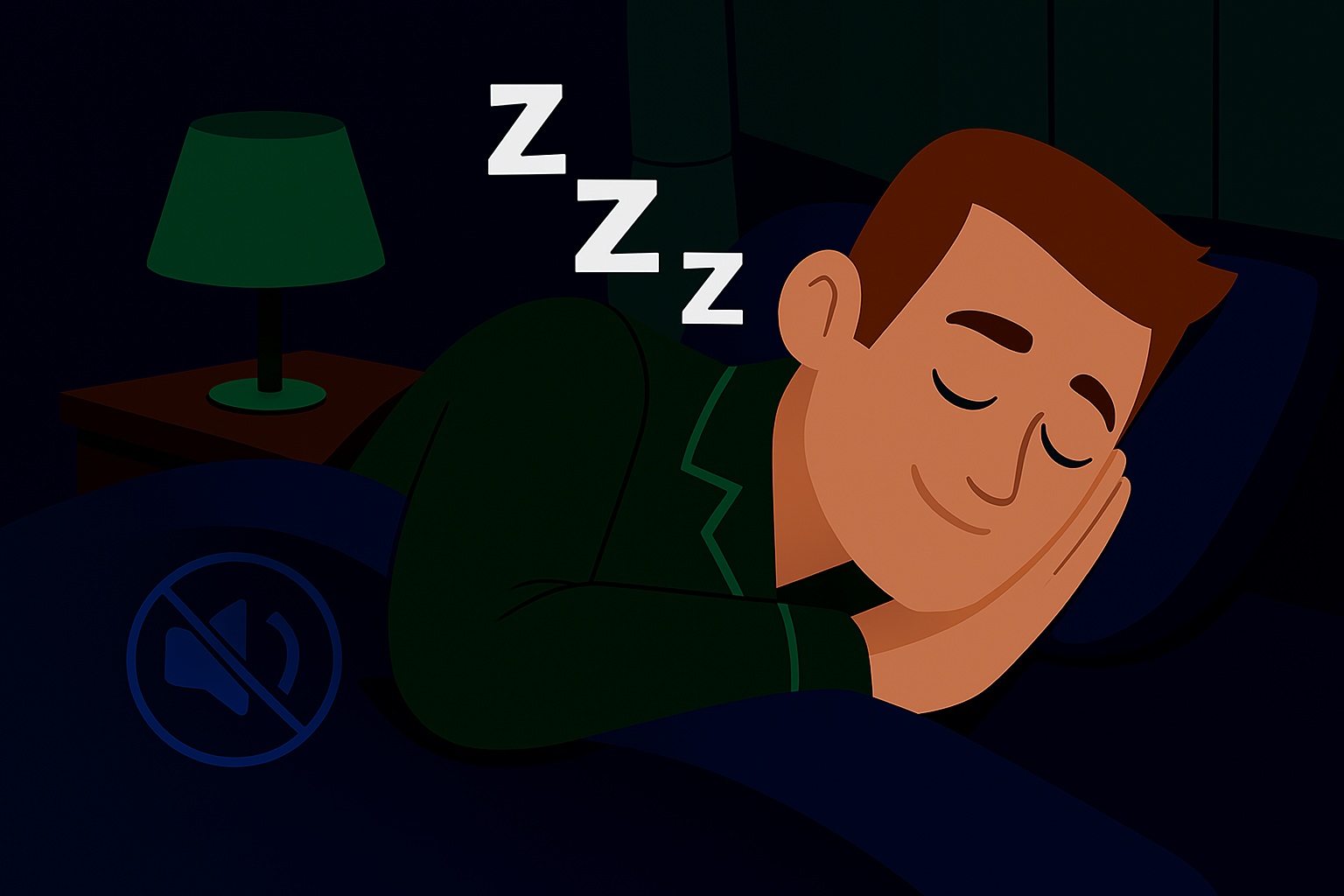← Back to Articles

🧭 1. Set Healthy Sleep Goals
- Ideal Sleep Duration: 7–9 hours per night
- Prioritize Consistency: Go to bed and wake up at the same time daily (including weekends)
- Sleep Quality: Minimize nighttime awakenings, difficulty falling asleep, and light sleep phases
🕰️ 2. Establish a Stable Sleep Rhythm
| Recommendation | Description & Benefits |
|---|---|
| Fixed Sleep Schedule | Reinforces your biological clock with consistent timing |
| Avoid “Social Jet Lag” | Don’t shift sleep/wake times by more than 90 minutes on weekends |
| Evening Rituals | Engage in relaxing activities (e.g., reading, meditation) before bed |
| Early Dinner | Finish eating at least 2 hours before bedtime to avoid blood sugar disruption |
💡 3. Optimize Your Sleep Environment
| Environmental Factor | Suggested Adjustments |
|---|---|
| Light Control | Use blackout curtains; avoid exposure to bright or blue light at night |
| Temperature | Keep bedroom between 18–22°C (64–72°F) for deeper sleep |
| Noise Management | Use white noise machines or earplugs to reduce disturbances |
| Bedding Comfort | Choose a mattress and pillow that suit your body type |
📵 4. Reduce Behaviors That Disrupt Sleep
- Avoid Caffeine: No coffee, tea, cola, or energy drinks after 2 PM
- Limit Alcohol: Though it may induce sleep, it disrupts deep sleep and blood sugar stability
- Reduce Screen Time: Avoid phones, computers, and TVs at least 1 hour before bed
- Skip Intense Exercise: Avoid vigorous workouts within 2 hours of bedtime; opt for light stretching or yoga instead
🧘♀️ 5. Support Sleep Quality with Helpful Tools
| Method | Description & Suggestions |
|---|---|
| Meditation & Breathing | 10 minutes of deep breathing or mindfulness each night to relax the nervous system |
| Sleep Journal | Track sleep duration, quality, and disturbances to identify patterns |
| Sleep Scoring Tools | Use tools like the Sleep Regularity Index (SRI) or smart wearables |
| CBT-I Therapy | Cognitive Behavioral Therapy for Insomnia—proven to improve sleep and blood sugar control |
🩺 6. Health Risk Reminders
- Poor or irregular sleep increases insulin resistance, inflammation, and appetite hormone imbalance
- Sleep disorders are closely linked to type 2 diabetes, cardiovascular disease, and obesity
- Improving sleep may reduce diabetes risk by 15–30%
✅ 7-Day Sleep Challenge (Printable Tracker)
| Day | Relax Before Bed | Reduce Screens | Fixed Schedule | Sleep Duration | Sleep Score (1–5) |
|---|---|---|---|---|---|
| Mon | ✅ | ✅ | ✅ | 7.5 hrs | 4 |
| Tue | ✅ | ✅ | ✅ | 8 hrs | 5 |
| … | … | … | … | … | … |
Explore Supplements
Discover detailed information about dietary supplements and their ingredients.
Browse SupplementsMore Articles
Read more articles about nutrition, health, and dietary supplements.
Read More Articles